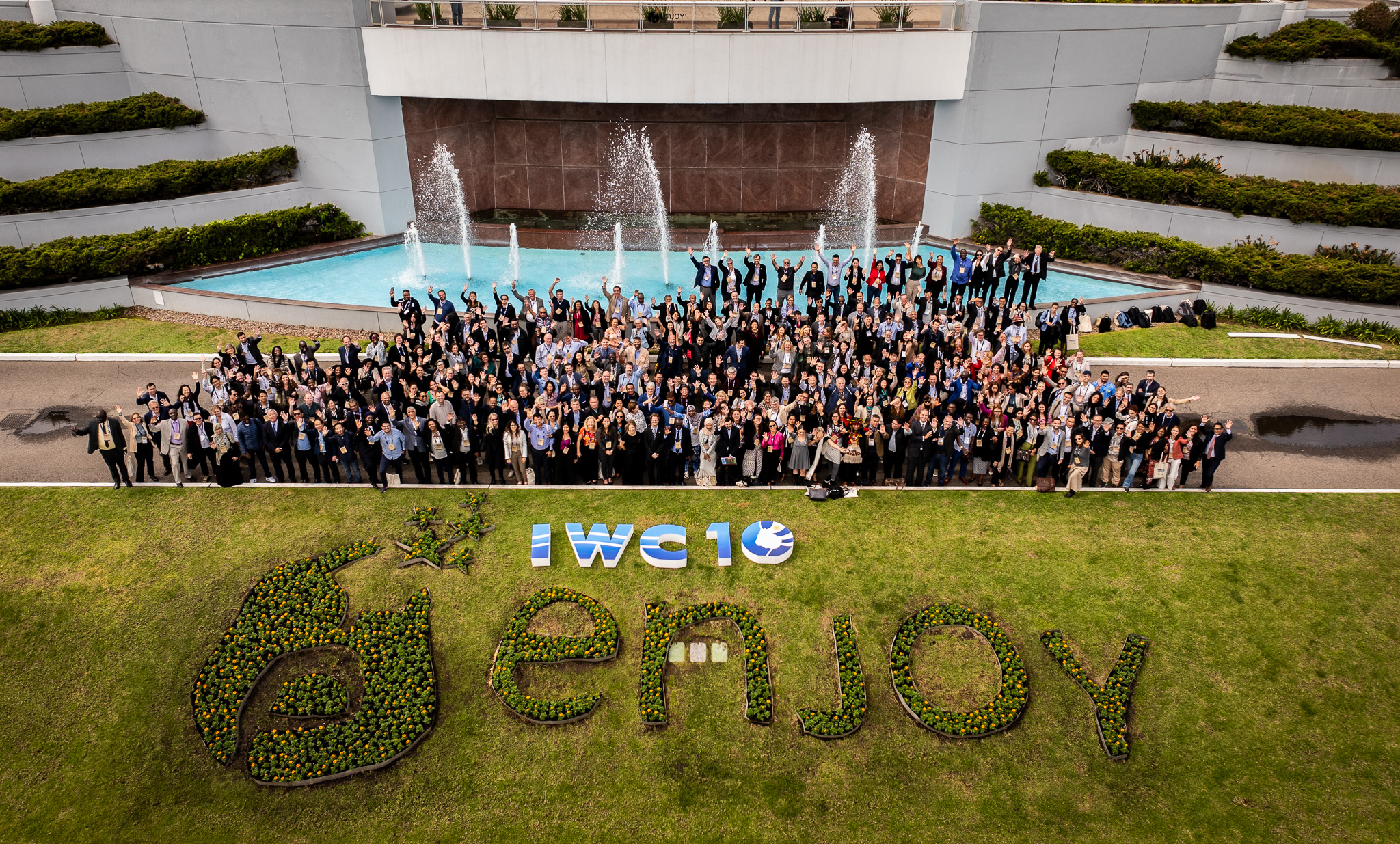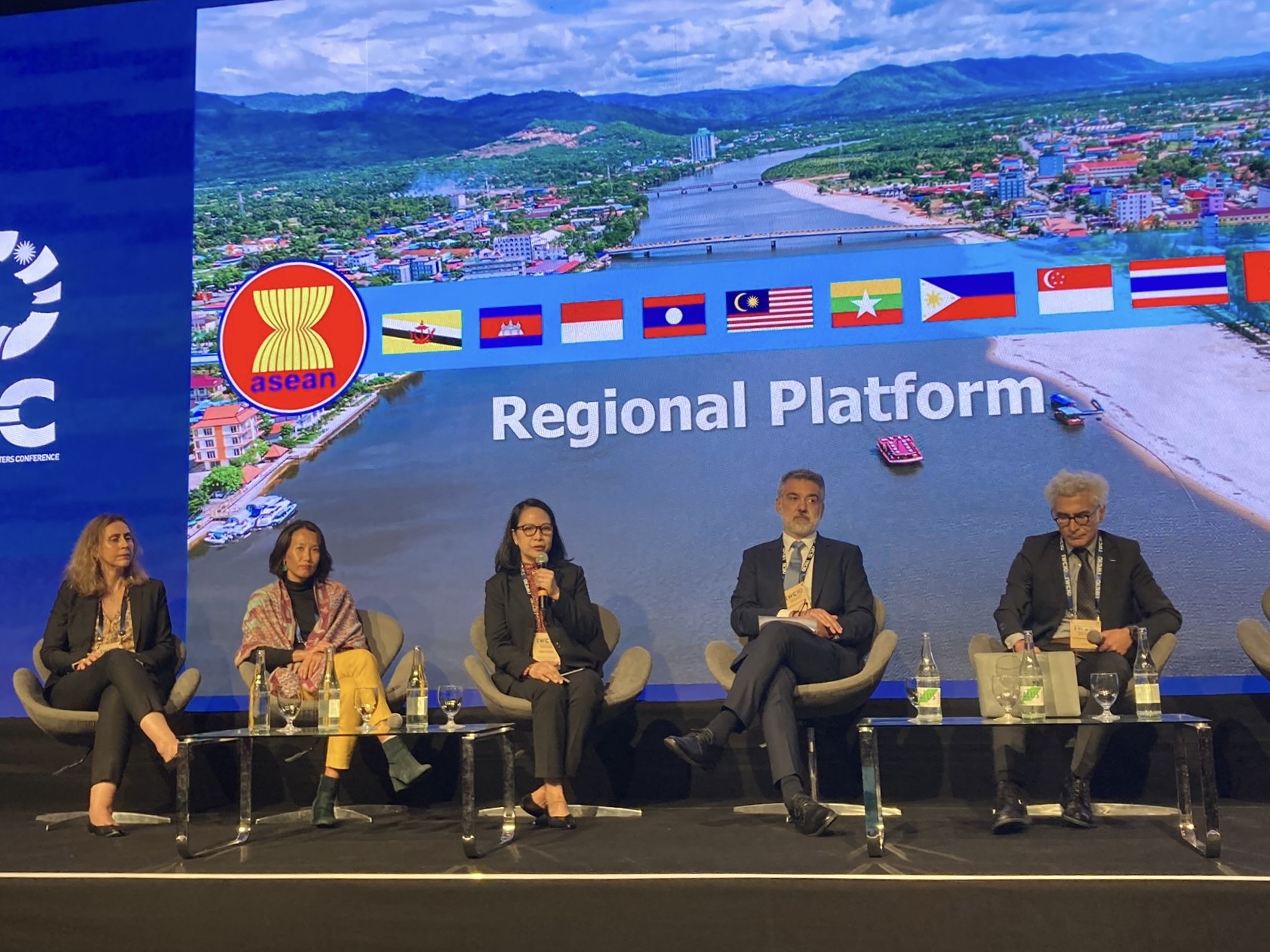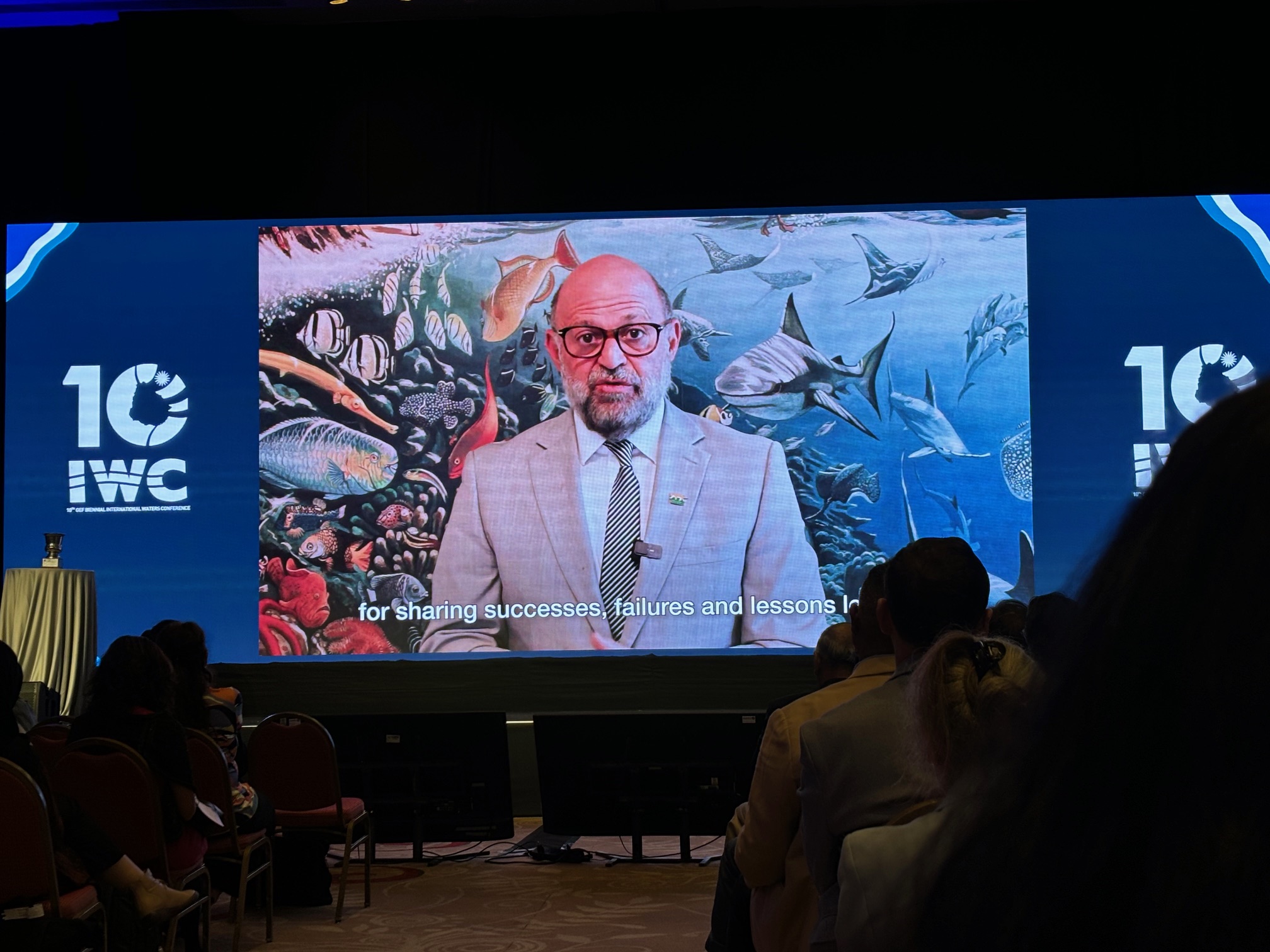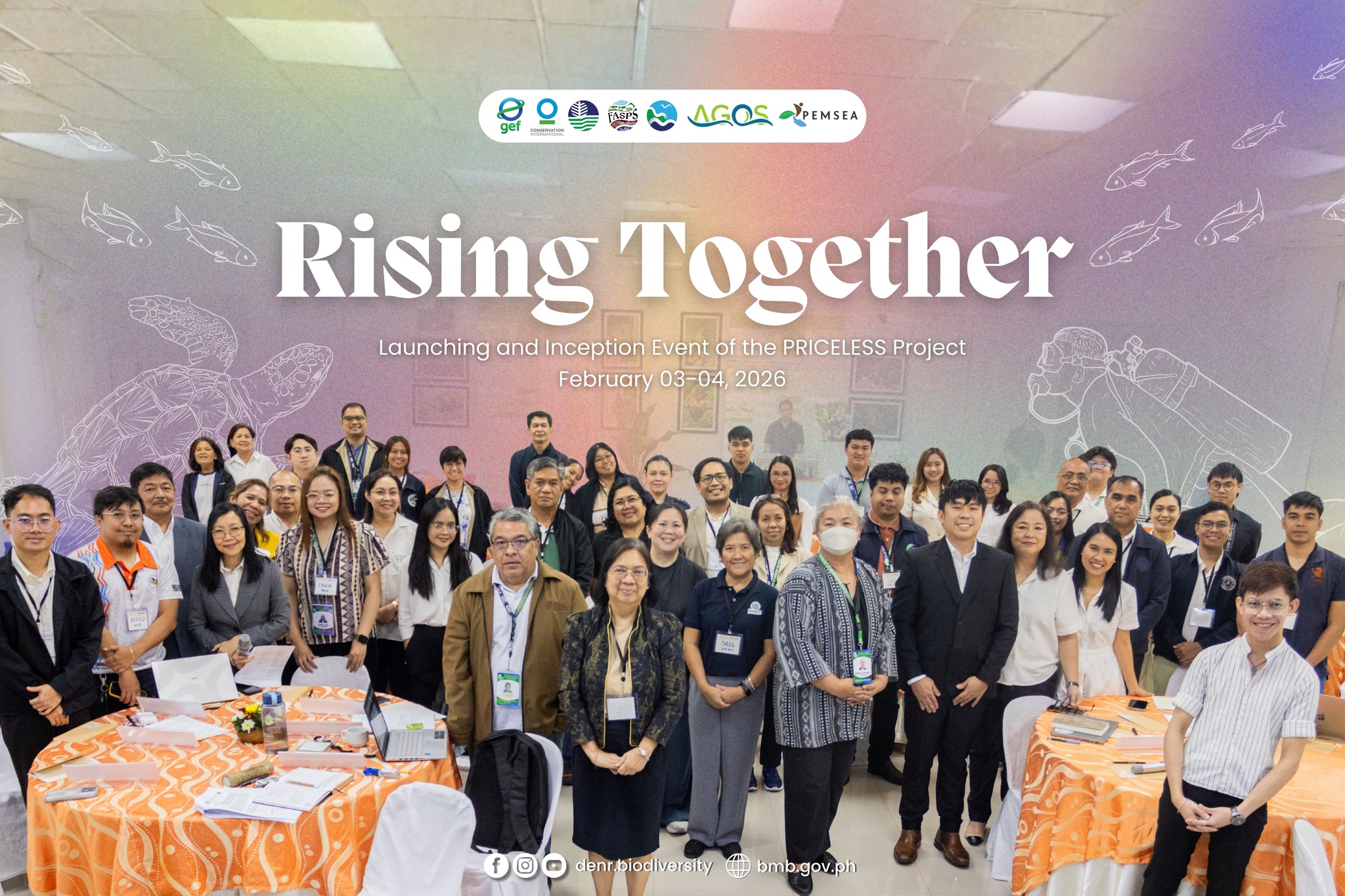ASEAN priority river basins make waves from source-to-sea at International Waters Conference
Monday, 7 October 2024

With over 400 participants from all over the world, the IWC 10 was a platform for different stakeholders in a week of knowledge exchange in Uruguay.
Punta del Este, Uruguay – The Integrated River Basin Management (IRBM) Project participated in the recently concluded the 10th Biennial International Waters Conference (IWC10) on 20-29 September 2024 in Punta del Este, Uruguay.
The IRBM Regional Project Manager Ms. Nancy Bermas joined a panel discussion under the session on Achieving Policy Coherence from Source to Sea, where she shared the Project’s experience in establishing the governance mechanisms at regional and river basin levels to improve the management of priority river basins in six ASEAN Member States. The pitch highlighted the utilization of the institutional framework of the ASEAN cooperation on environment through the ASEAN Working Group on Water Resources Management as the regional platform for consensus decision-making, risk management, cooperation and project execution oversight. Ms. Bermas also underscored that at the basin level, various models of inter-agency, multisectoral coordinating mechanisms were established based on the needs and opportunities at the basin level.

IRBM Regional Project Manager Ms. Nancy Bermas made her pitch about the Project during the panel discussion on source-to-sea.
Under the theme "Transformative actions and impacts for the water and ocean SDGs: The GEF IW response to the global challenge," the conference brought together over 400 participants from different regions of the globe, celebrating 30 years of the Global Environment Facility International Waters programmes focal area. The multi-stakeholder participation witnessed exchange of learning and experiences from project managers, institutional stakeholders from beneficiary countries, non-governmental and civil society organizations, transboundary and regional management institutions, United Nations agencies, international funding institutions, intergovernmental organizations, and the private sector.
The conference was designed to facilitate cross-sectoral and portfolio-wide learning and experience sharing, where challenges and solutions were discussed, good practices were showcased, and generated ideas for new projects under GEF 9 funding.
In this year’s IWC, discussion were streamlined in six themes: a) evolution and innovation towards the next generation of transboundary cooperation and governance: from assessment to action; b) achieving policy coherence from source to sea; c) towards the 30x30 target across the globe; d)sustainable fisheries and aquaculture management: integrating ecosystem approaches for resilient resources and livelihoods; e) fostering inclusivity: gender and youth engagement in international waters project, and f) looking into the future: ensure robustness to future change.

The Global Environment Facility has been supporting conservation and protection efforts of international waters in different regions of the globe. It has become a steadfast development partner of 186 countries and 18 implementing agencies.
The IWC 10 was jointly organized by the GEF International Waters Learning Exchange and Resource Network (IW:LEARN), the United Nations Development Programme (UNDP), United Nations Environment Programme (UNEP), the United Nations Educational, Scientific and Cultural Organization’s Intergovernmental Oceanographic Commission (UNESCO-IOC), and other partners on behalf of the GEF International Waters (IW) project portfolio and hosted by the Government of Uruguay.
The IWC was concluded with brief reports from the six sub-themes and the transfer of the conference cup to the IWC11 host region, which is Asia Pacific.
About the IRBM Project
Supported by the Global Environment Facility, the Integrated River Basin Management (IRBM) Project aims to set-up functional management mechanisms in priority river basins of six ASEAN countries to reduce pollution and sustain freshwater environmental flows as well as adapt to climate change vulnerabilities.The Project is being implemented by the United Nations Development Programme, and executed by Partnerships in Environmental Management for the Seas of Seas Asia, in collaboration with ASEAN.




